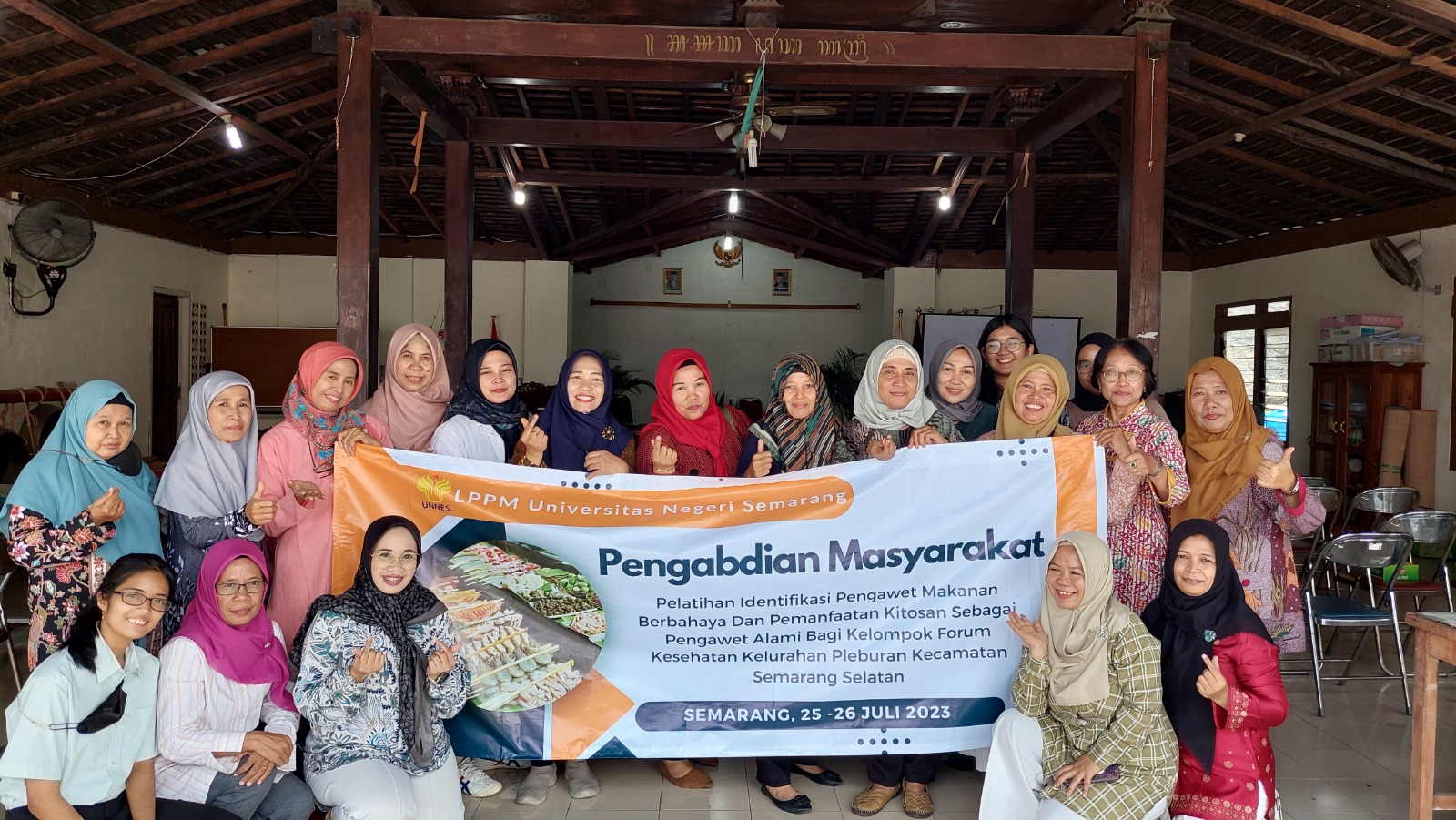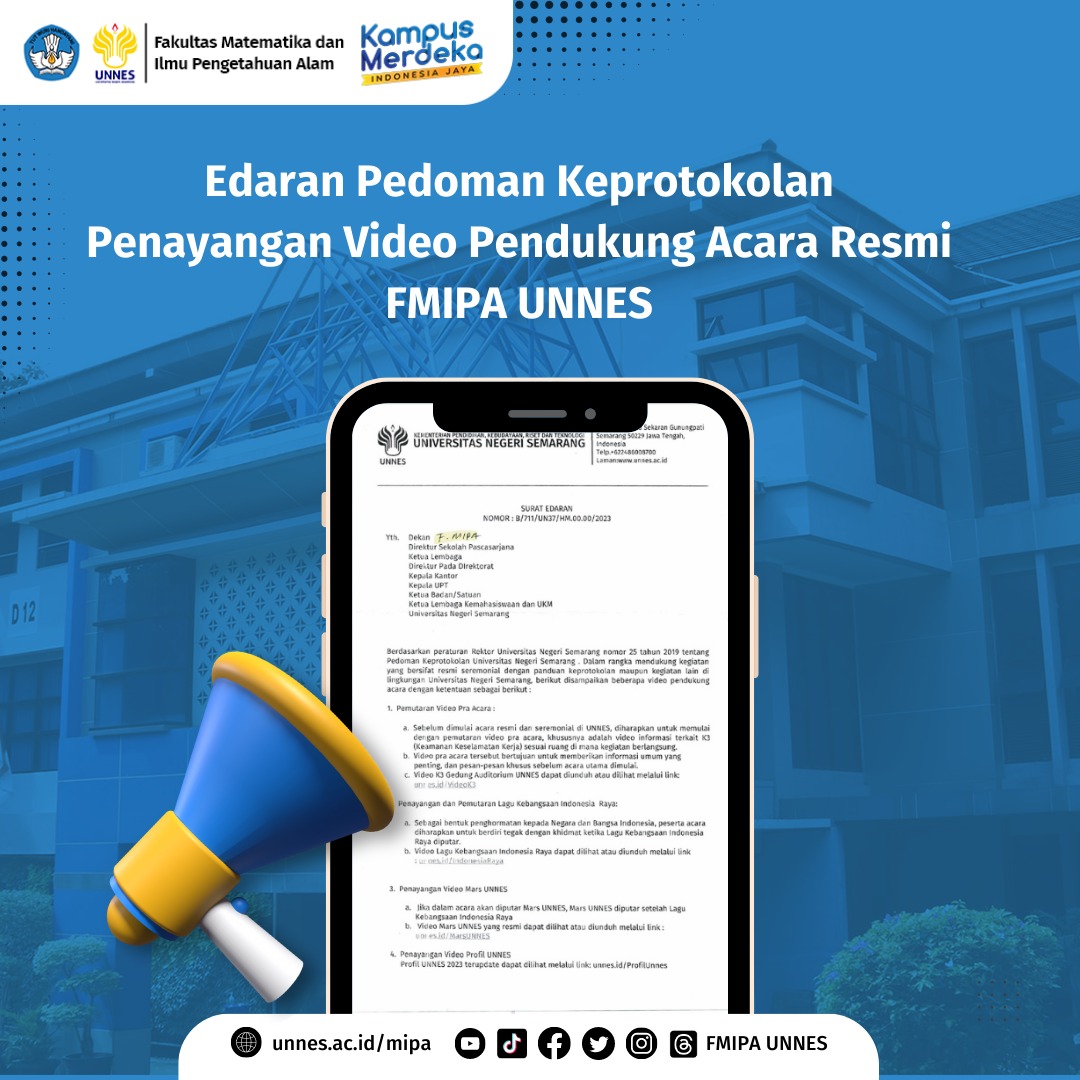On Tuesday, 25th July 2023, the Community Service Team of UNNES LPPM conducted a training event on identifying dangerous food preservatives and the use of chitosan as a natural preservative. The training was aimed at the members of the Health Forum in Pleburan Sub-District, South Semarang.
According to the Head of the Community Service Team, Dr. Aditya Marianti, raising awareness about the dangers of harmful preservatives like borax and formalin in food is essential, as their accumulation in the body can lead to degenerative diseases such as cancer, liver problems, kidney failure, and more. The community needs to be trained to identify these dangerous preservatives using readily available materials and to utilize safe and easy-to-use natural preservatives like chitosan.
The Head of Pleburan Sub-District, represented by the Secretary, Ms. Anna, welcomed the community service activity, hoping it would enhance the knowledge and skills of the Health Forum members.
According to the Chairperson of the Health Forum in Pleburan, Dwi Yuliwati, this community service activity is highly beneficial for their members, who play a role in providing education and assistance in various community health-related matters, especially regarding environmental health, care for the elderly, and other activities. It is expected that they will disseminate the knowledge gained from this community service to raise awareness among the public about harmful food preservatives and offer alternatives using safe natural ingredients.
One of the speakers from the UNNES LPPM community service team, Safira Chairani, M.Biomed, stated that the risks associated with harmful preservatives can be reduced by controlling the amount consumed, spacing out the consumption, consuming antioxidants, and substituting preservatives with natural ingredients. Chitosan, derived from the deacetylation process of chitin compounds found in crustacean shells like shrimp and crab, can act as a natural preservative due to its proven antibacterial properties.
To enable the public to identify whether food contains dangerous preservatives, the UNNES community service team provided training on identifying borax using turmeric solution and formalin using papaya latex. Additionally, participants were trained on how to preserve food using liquid chitosan. The training was attended not only by Health Forum members of Pleburan Sub-District but also representatives from the Mother and Child Welfare Family Program (PKK), food small and medium-sized enterprises (UMKM) merchants, the Elderly Forum, and representatives from Karang Taruna. The activity was also attended by the Head of LPMK of Pleburan Sub-District, South Semarang, Kota Semarang.





